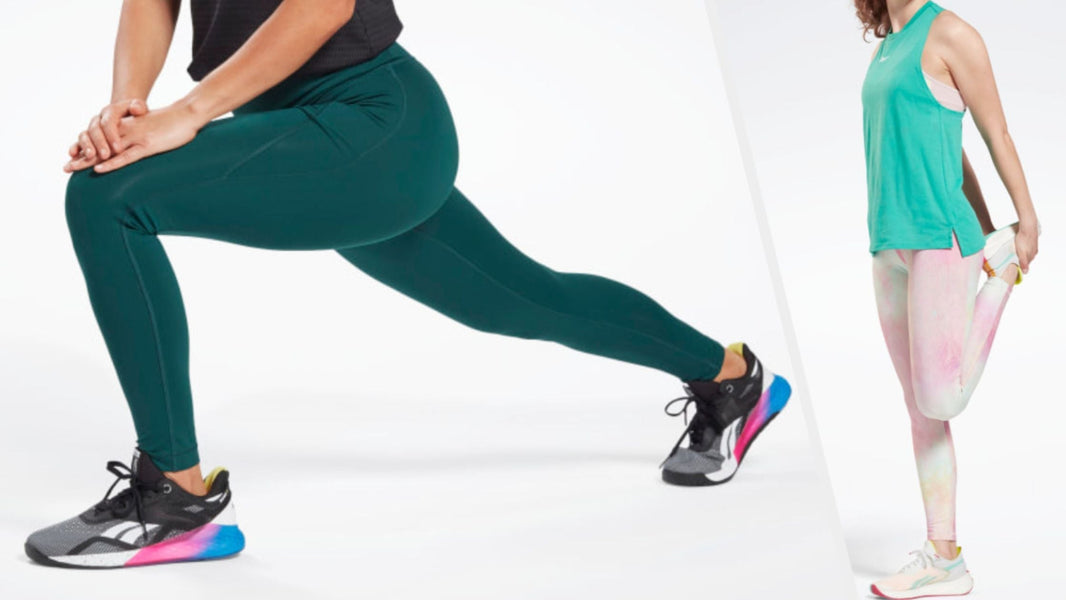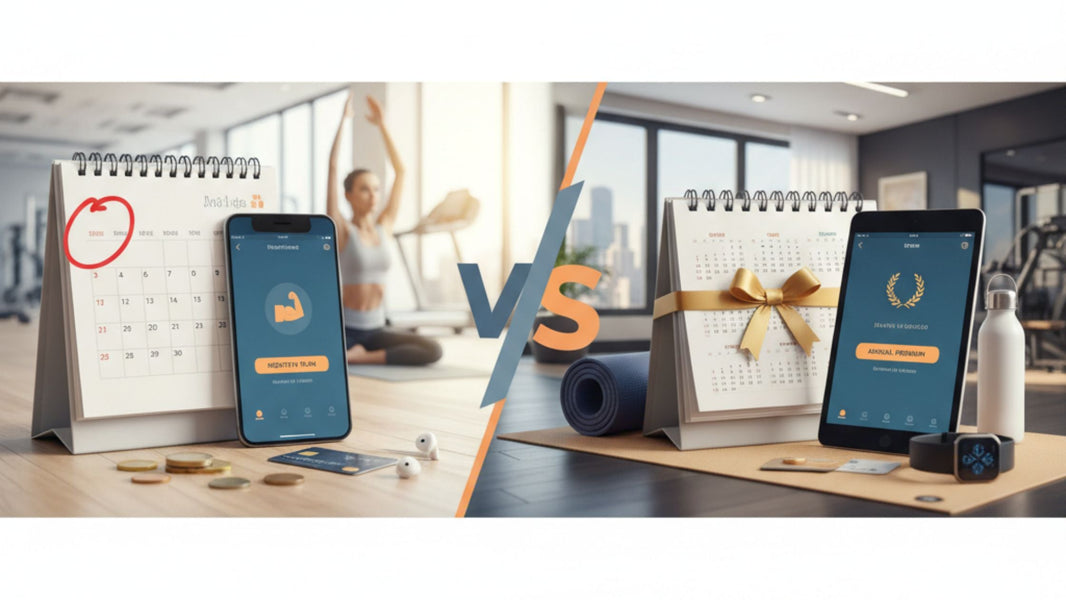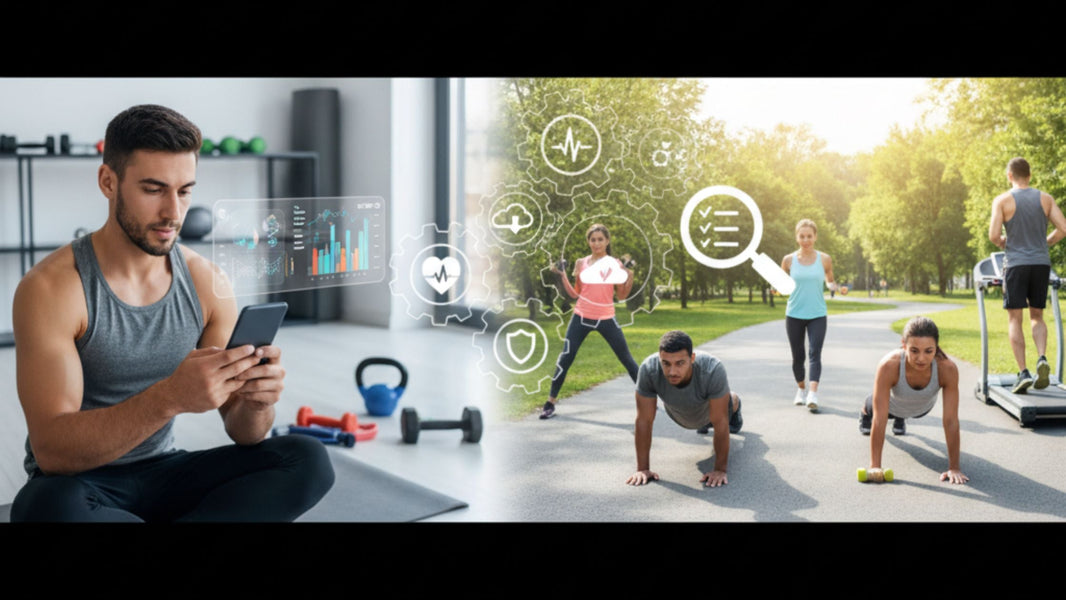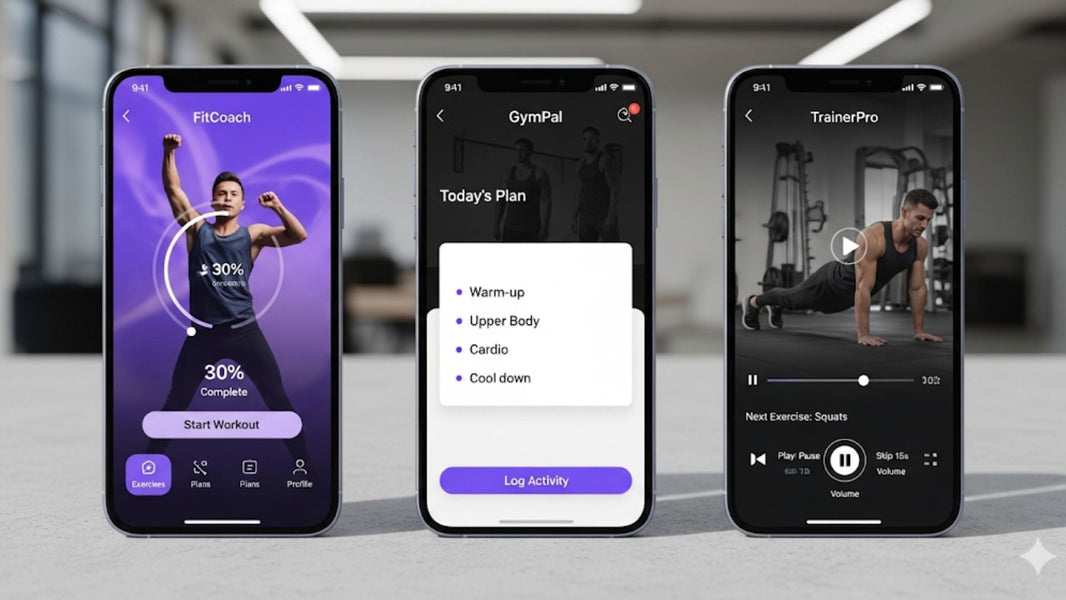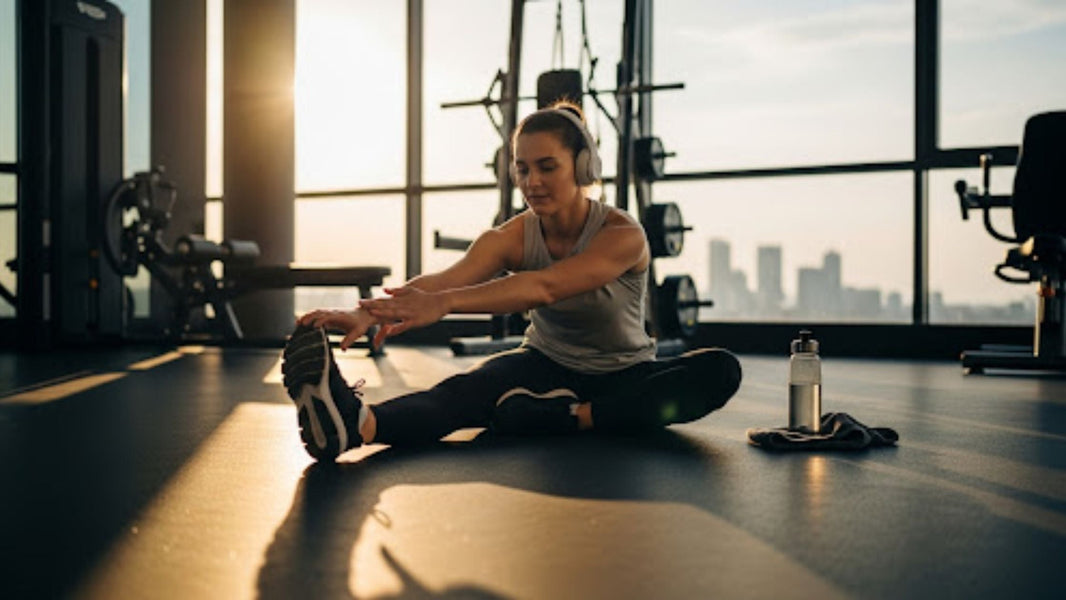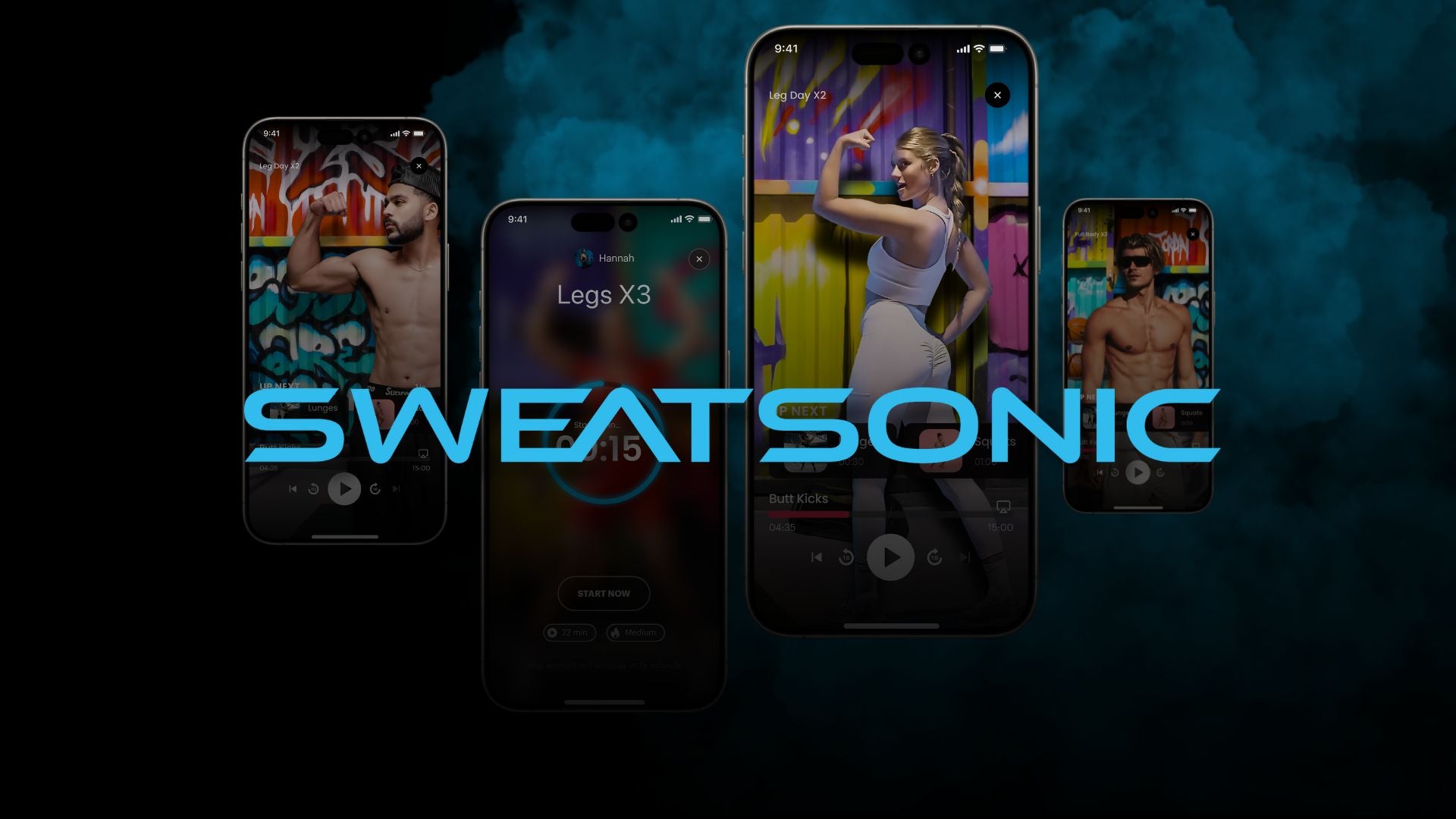So, you’ve cleared out your living room, dusted off those dumbbells, and maybe even bought a resistance band you still haven’t unwrapped. Or perhaps you’re a loyal gym-goer who gets overwhelmed trying to figure out if leg day requires, well… legs. Either way, figuring out what to do and how to do it can feel like trying to solve a Rubik’s cube while doing burpees.
The good news? You don’t need to hire a personal trainer who yells “one more rep!” for $100 an hour anymore. Welcome to 2025, where fitness trainer apps have turned your smartphone into a pocket-sized coach. From yoga and cardio to lifting heavy things and putting them back down (aka strength training), these apps cover it all. They’re smart, they’re supportive, and most importantly, they don’t judge you for skipping leg day.
What Should Beginners Look for in a Fitness Trainer App?
Let’s be real, starting your fitness journey with the wrong app is like showing up to a marathon in flip-flops. You’ll either burn out, pull something, or ghost the app entirely by week two. So, if you're new to the world of burpees and playlists with way too much EDM, here's what matters when picking a fitness trainer app:
1. Structured Guidance Without the Brain Fog
The best beginner apps don’t just shout, “Do 100 squats!” and vanish. They guide you like a friendly coach, not a drill sergeant. Look for beginner workout apps that ask about your fitness level, goals, and preferences before throwing you into a sweat puddle. Bonus if it walks you through progressive routines that make sense and don’t sound like a cyborg wrote them.
2. Adaptability That Grows With You
Good apps understand that not every day is beast mode. Some days are “I just want to stretch and survive.” The top beginner apps adjust workouts based on your progress, let you hit replay on your faves, and scale things up only when you’re ready.
3. Motivation Without the Guilt Trips
Starting is hard. Staying consistent? Even harder. That’s why great apps come with gentle nudges and think streak counters, encouraging push notifications, high-fives for milestones, and progress trackers that make you feel like a legend even for showing up.
4. No Fancy Equipment Needed
Unless you’ve got a full-blown home gym (and a butler named Chad), chances are you’ll want something that works with bodyweight, dumbbells, or a lone resistance band. Beginner-friendly apps keep it simple, effective, and living room approved. No circus tools required.
Best Fitness Trainer Apps for Beginners in 2025
To help beginners make the right choice, we tested and reviewed the most accessible and effective easy fitness coach in 2025, focusing on ease of use, motivation, structure, and long-term support.
Here are the best options available in the U.S. this year.

1. SweatSonic
If staring at a tiny screen while trying not to trip over your own feet isn’t your vibe, SweatSonic gets you. This beginner-friendly app ditches the usual “follow-along” videos and replaces them with beat-synced voice coaching that guides you move by move, and kind of like having a rhythm-savvy coach in your ear.
No endless scrolling, no decision fatigue, and no awkward phone-checking between reps. Whether you're lifting dumbbells or just using your bodyweight, SweatSonic adapts as you grow stronger, without overwhelming you.
It’s the workout version of music therapy. So if you're new, easily distracted, or just tired of staring at fitness influencers doing backflips, SweatSonic might just be your new best (training) friend.
Pros
Here are the top features of SweatSonic, as highlighted on their official website:
-
Cadence Reps® – Move to the Beat, Literally
Forget aimless reps. This patented tempo-based system syncs your movements and pushes, holds, and plays with music. It cranks up time under tension and keeps you engaged, all while feeling like you’re dancing with dumbbells. Muscle burn, but make it musical. -
Music-Driven Coaching – No Screens, No Counting, Just Flow
Each workout becomes its soundtrack. Voice cues are blended seamlessly into the beat, so you’re never guessing what’s next. No timers, no rep counting, no awkward glances at your phone mid-squat. Just move and groove. -
Audio-First, Screen-Free Freedom
Whether you’re in your living room, gym corner, or jogging past confused squirrels at the park—SweatSonic works wherever you do. It’s fully hands-free, which means no tapping screens with sweaty fingers. Freedom never sounded so good. -
Backed by Science, Tuned by Musicians
This isn’t just a cool idea, and it’s co-created by exercise physiologists and musicians. That means every tempo, every beat, and every session is designed for results and rhythm. You’re getting more innovative workouts, not just louder ones. -
Workout Guarantee – Feel the Difference or Peace Out
Not impressed after one session? No worries. SweatSonic’s got a “feel-it-or-forget-it” policy. If you don’t vibe with it, they’ll make it right. Confidence level: maxed. -
Minimal Gear, Major Results
Only got a pair of dumbbells and some floor space? That’s all you need. No bulky machines, no weird gadgets—just practical, beginner-friendly equipment for real progress, even if you’re short on time or travel often.
-
Motivational Testimonials: It also helps stay motivated. The site features user quotes, such as “I don’t need to count reps anymore” and “It’s conducive for me when I go to the gym,” highlighting the app’s ability to simplify routines and enhance workout enjoyment.
Cons
-
First-time users may find the interface highly engaging.

2. Nike Training Club
Nike Training Club is one of the most reputable names in the first-time fitness app users space, and for good reason. What started as a companion app for Nike athletes has now grown into a massive, free platform offering workouts for every level. It’s especially friendly to beginners because of its program-based approach: you can filter workouts by difficulty, time, and goal. Sessions range from bodyweight-only options to guided yoga and mobility flows.
Pros
Here are the key features of Nike Training Club, as highlighted on their official app pages:
-
Massive Free Workout Library: Offers nearly 500 on-demand workouts across categories like strength, HIIT, yoga, cardio, and mobility, and is entirely free with no paywall.
-
Program-Based Plans: Includes structured, progressive programs (2–6 weeks) with set goals such as strength, endurance, or mobility.
-
Expert Video Guidance: Workouts led by certified Nike trainers and celebrity athletes, complete with clear demonstration videos.
-
Wellness and Recovery Content: Offers holistic guidance on nutrition, mindset, recovery, and sleep, alongside workouts.
-
Goal Tracking & Motivation: Includes progress tracking, goal-setting tools, workout scheduling, and seamless integration with Apple Health and Google Fit.
-
Offline & Casting Support: Enables users to download workouts for offline use and cast sessions to a larger screen.
-
Global Trainer Community: Features a diverse roster of approachable Nike trainers across fitness styles and experience levels.
Cons
-
No live form correction or interactive feedback

3. FitOn
FitOn has become a favorite among beginners due to its welcoming and motivational environment, as well as its wide range of workout types. The app provides access to hundreds of free workouts across various disciplines, including strength training, yoga, dance, Pilates, and more, all taught by celebrity trainers and fitness coaches. While most of the core features are free, users can unlock nutrition plans, offline downloads, and heart-rate monitoring with FitOn PRO.
Pros
-
Celebrity-Led Workouts: Train with fitness personalities like Gabrielle Union, Jonathan Van Ness, Julianne Hough, and Jeanette Jenkins.
-
Wide Range of Fitness Classes: Includes strength, HIIT, yoga, Pilates, barre, dance, cardio, prenatal, and low-impact workouts.
-
No Equipment Needed Options: Many routines are bodyweight-only—perfect for home use.
-
Real-Time Progress Tracking: Set goals, track your workout streaks, and view your performance history.
-
Social Integration: Invite friends, share workouts, participate in challenges, and motivate each other through the in-app community.
-
Unlimited Free Workouts: The free version provides access to hundreds of ad-free workouts with no restrictions.
-
FitOn PRO (Premium Version):
-
Personalized meal plans and recipes
-
Offline workout downloads
-
Music options, including Spotify and Apple Music integration
-
Heart rate tracking (with wearable compatibility)
Cons
-
Some advanced tools are gated behind PRO membership.
-
It can be overwhelming if you don’t use filters effectively.

4. Seven – 7 Minute Workout
Seven is perfect for people who say, “I don’t have time to work out.” The app is built around daily, science-backed 7-minute routines that require zero equipment. Each session features high-intensity intervals that are designed to improve cardiovascular health, strength, and endurance, all within a few minutes per day.
Pros
-
Scientifically Backed 7-Minute Workouts: Designed using research-based HIIT principles to deliver effective results in minimal time.
-
No Equipment Required: All exercises can be performed using just your body weight, making them ideal for use at home, in the office, or on the go.
-
Daily Workout Challenge: Encourages users to stay consistent by completing short daily sessions.
-
Gamified Progress Tracking: Earn badges, unlock achievements, and compete with friends to stay motivated.
-
AI Personal Trainer (with Premium): Customizes your workout plan based on goals, fitness level, and feedback.
-
Variety of Goals: Users can select from multiple fitness goals like “Get Fit,” “Lose Weight,” or “Build Strength.”
-
Custom Workouts (Premium): Allows you to build personalized routines using any combination of available exercises.
-
Cross-Device Sync: Tracks your stats and preferences across devices, including mobile and tablet.
Cons
-
Limited variety compared to larger platforms
-
Requires upgrade for complete coaching and personalization

5. Jefit
If you’re the type who likes to keep receipts on your gains, Jefit might just be your new gym BFF. This strength-training app is built for beginners who want structure, clarity, and the satisfying joy of checking boxes. It comes packed with a ridiculous number of exercises (thousands!)—each with visuals and tips so you're not left wondering what a “Romanian deadlift” actually looks like.
The first-time fitness app features thousands of exercises. The best part? Jefit isn’t just about doing the work but it’s about tracking it. You can log your sets, reps, rest times, and even your biceps (yes, really). Think of it as your digital workout journal… but way cooler.
Pros of Using Jefit
-
Perfect for gym-goers focused on strength progress
-
Massive library of exercises with form guidance
-
Beginner-friendly training templates included
-
Built-in community, forums, and progress charts to stay motivated
Final Thoughts
In 2025, the top fitness trainer apps for beginners aren’t the flashiest—they’re the ones that help you get started. Whether you're dusting off your sneakers after a long break or jumping into your very first workout plan, the right app should guide you gently, build your confidence, and help you stay on track without making you feel lost or judged.
Among them all, SweatSonic takes the spotlight. Its music-driven, screen-free workouts are a game-changer for anyone who finds traditional apps overwhelming or boring. If you’re ready to move with purpose, stay consistent, and enjoy your workouts, SweatSonic isn’t just an app—it’s your rhythm-powered fitness partner.
If you want to know how it works, it is explained here
Frequently Asked Questions (FAQs)
What is the best fitness trainer app for beginners in 2025?
SweatSonic is our top pick for beginners in 2025. It offers music-synced audio coaching, no-screen workouts, and progressive routines tailored for new users.
Are fitness trainer apps effective for complete beginners?
Yes. The best fitness trainer apps provide guided programs, real-time coaching, and motivational tools that help beginners build consistent habits and improve safely.
Do I need gym equipment to use a fitness app with a trainer?
Not necessarily. Many apps are designed for home use and require only bodyweight or minimal equipment, like a pair of dumbbells.
Can I use these apps without any prior fitness experience?
Absolutely. Apps like SweatSonic, FitOn, and Seven are specifically designed to support users with no prior fitness experience by offering simple, progressive routines.
Are fitness apps better than hiring a personal trainer?
Fitness apps are more affordable and flexible than traditional personal training. While they lack face-to-face interaction, they offer personalized plans, coaching cues, and tracking tools that are ideal for beginners.



